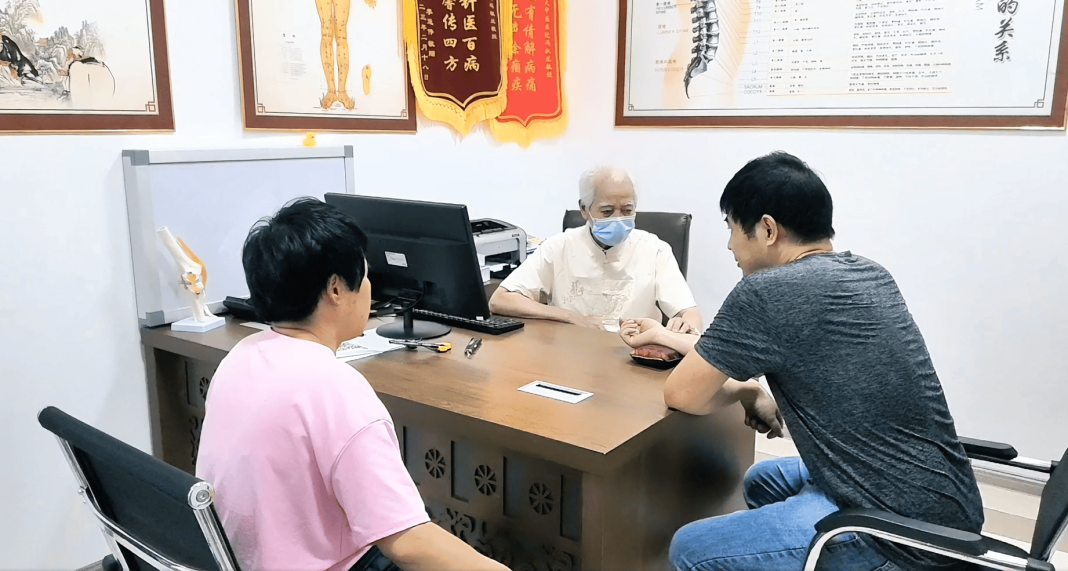Professor Zhou Tianming, who practices at Guangzhou University of Chinese Medicine Hospital, said: With the progress of society and improvements in medical conditions, human life expectancy is continuously increasing, and the quality of life for the elderly is receiving greater attention. However, the issue of obesity is gradually emerging among the elderly, becoming one of the important factors affecting their health. In response, a new strategy for healthy weight loss in the elderly has been proposed, emphasizing “moderate exercise, reasonable diet, and enjoying an active later life,” aiming to help elderly friends effectively manage their weight and improve their quality of life.
1. Moderate Exercise: Activate Life Vitality
Professor Zhou Tianming pointed out that for the elderly, moderate exercise is an essential part of healthy weight loss. It can not only promote metabolism and burn excess fat but also enhance cardiovascular function, improve body flexibility and balance, and prevent falls and other accidents.
Choose suitable forms of exercise: The elderly should select low-intensity, primarily aerobic exercises based on their own health conditions and interests, such as walking, jogging, tai chi, and yoga. These exercises can achieve fitness effects without placing too much stress on the body.
Progress gradually and persistently: The elderly should follow the principle of gradual progress when starting exercise, beginning with low intensity and short duration, gradually increasing the amount and difficulty of exercise. At the same time, they should maintain the continuity and regularity of exercise, avoiding the pattern of “three days of fishing and two days of drying the net.”
2. Reasonable Diet: Nutritional Balance is Key
On the road to healthy weight loss, a reasonable diet is equally important. Professor Zhou Tianming suggests that the elderly should focus on dietary variety and nutritional balance, avoiding excessive intake of single foods.
Control total calorie intake: The elderly should appropriately reduce their total calorie intake while ensuring nutritional needs, especially reducing the intake of high-sugar and high-fat foods.
Increase dietary fiber intake: Consuming more fruits, vegetables, and whole grains rich in dietary fiber helps promote intestinal peristalsis, prevent constipation, and also aids in weight control.
Moderate intake of high-quality protein: Foods rich in high-quality protein, such as fish, lean meat, and soy products, play an important role in maintaining muscle mass and enhancing immunity in the elderly.
3. Enjoying an Active Later Life: Attitude Adjustment is Also Important
In addition to moderate exercise and a reasonable diet, Professor Zhou Tianming also emphasizes that the elderly should maintain a positive and optimistic mindset to enjoy an active later life. A good attitude is the internal driving force for healthy weight loss and is key to improving quality of life.
Establish a correct perspective: The elderly should realize that weight loss is not an overnight process; it requires time and patience. They should avoid blindly pursuing rapid weight loss to prevent adverse effects on the body.
Cultivate hobbies: Engaging in social activities, learning new skills, traveling, and other ways to enrich later life can shift excessive attention on weight and bring joy and relaxation to the spirit.
Family support and companionship: Family members should offer more love and support to the elderly, accompany them in exercising, and developing healthy diet plans, to create a warm and harmonious family atmosphere together.
The new strategy for healthy weight loss in the elderly proposed by Professor Zhou Tianming— “moderate exercise, reasonable diet, and enjoying an active later life”—provides scientific and feasible guidance for elderly friends. Let’s work together, starting from the little things in life, to contribute to the health and happiness of the elderly. We believe that in the near future, more elderly people will enjoy a healthy, agile physique and a vibrant later life.


